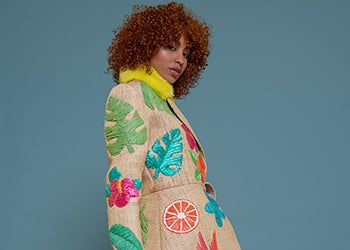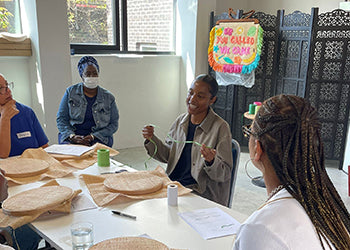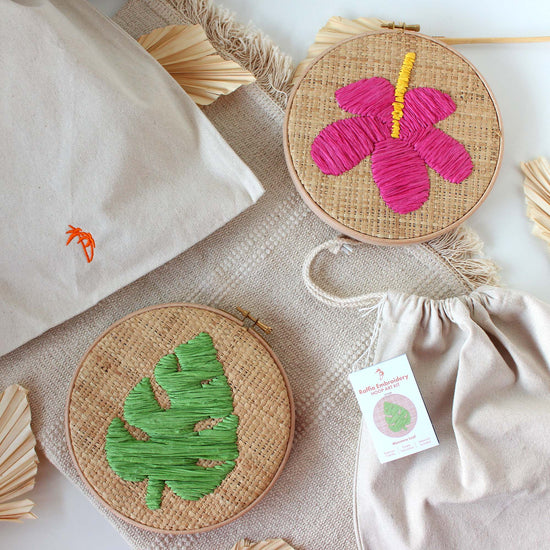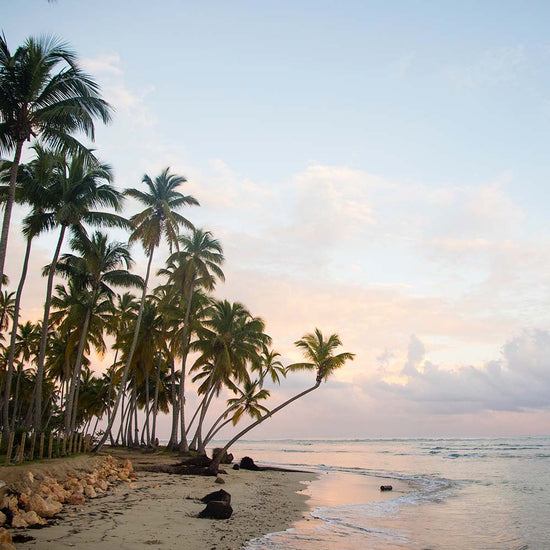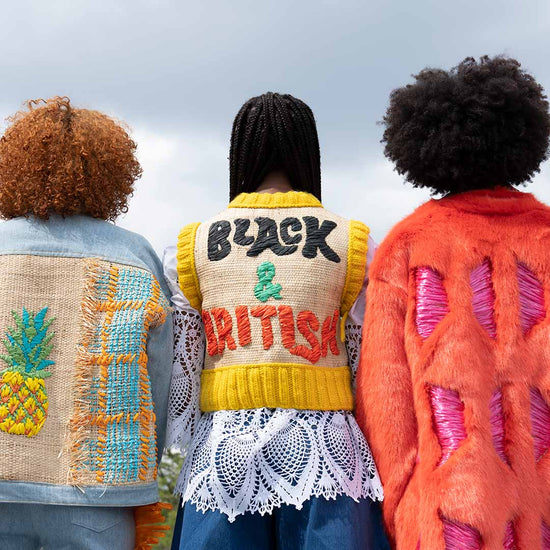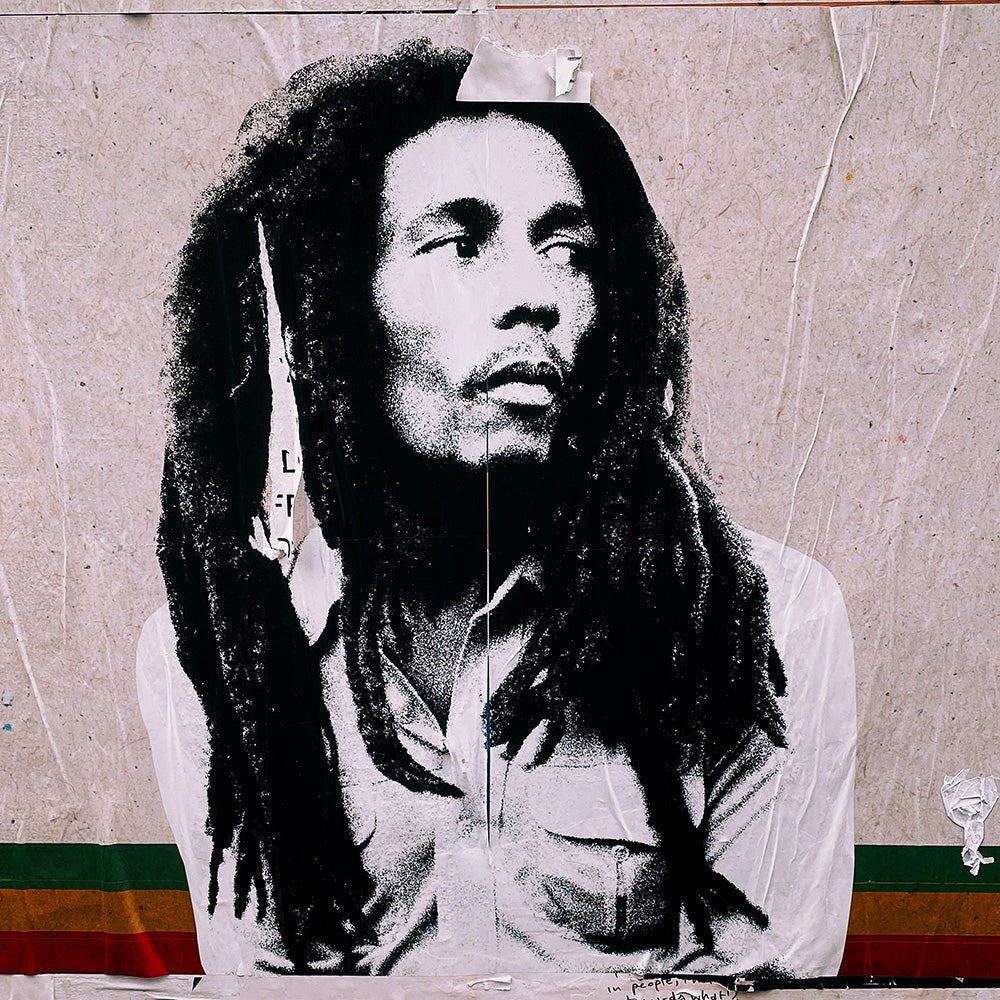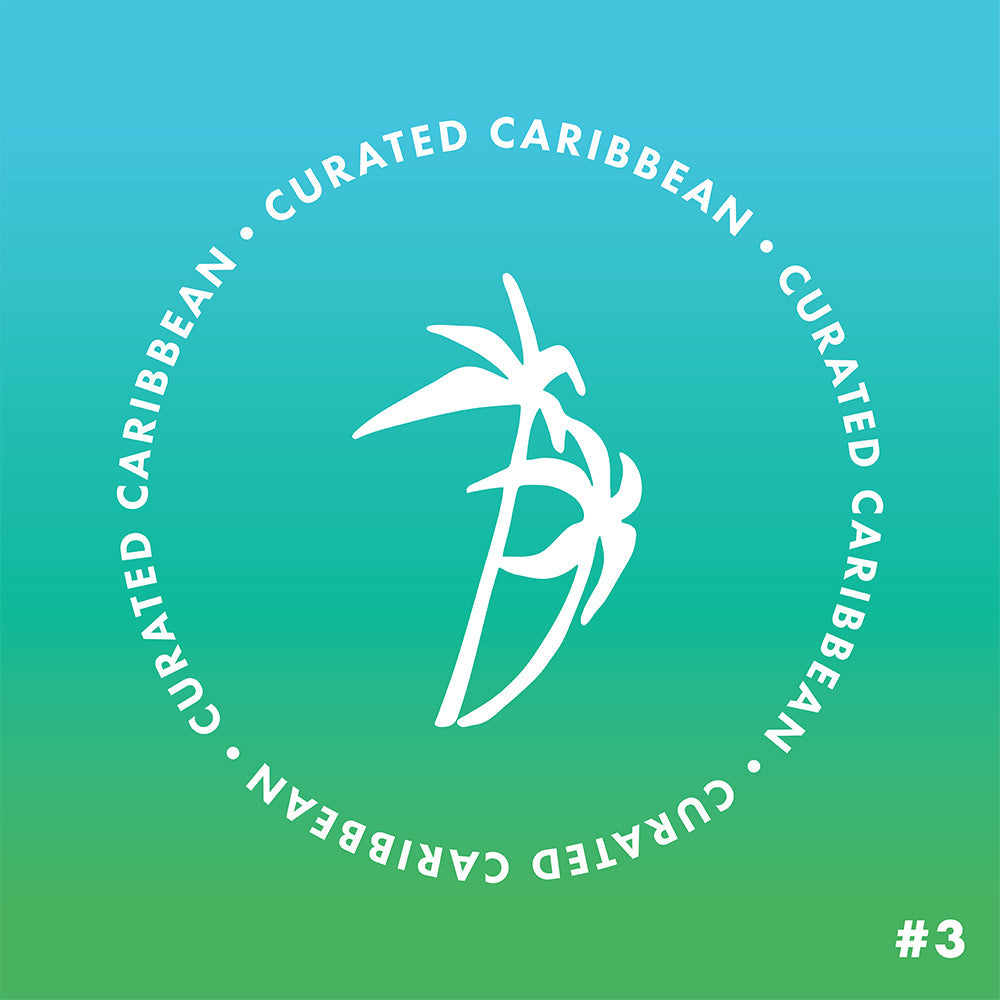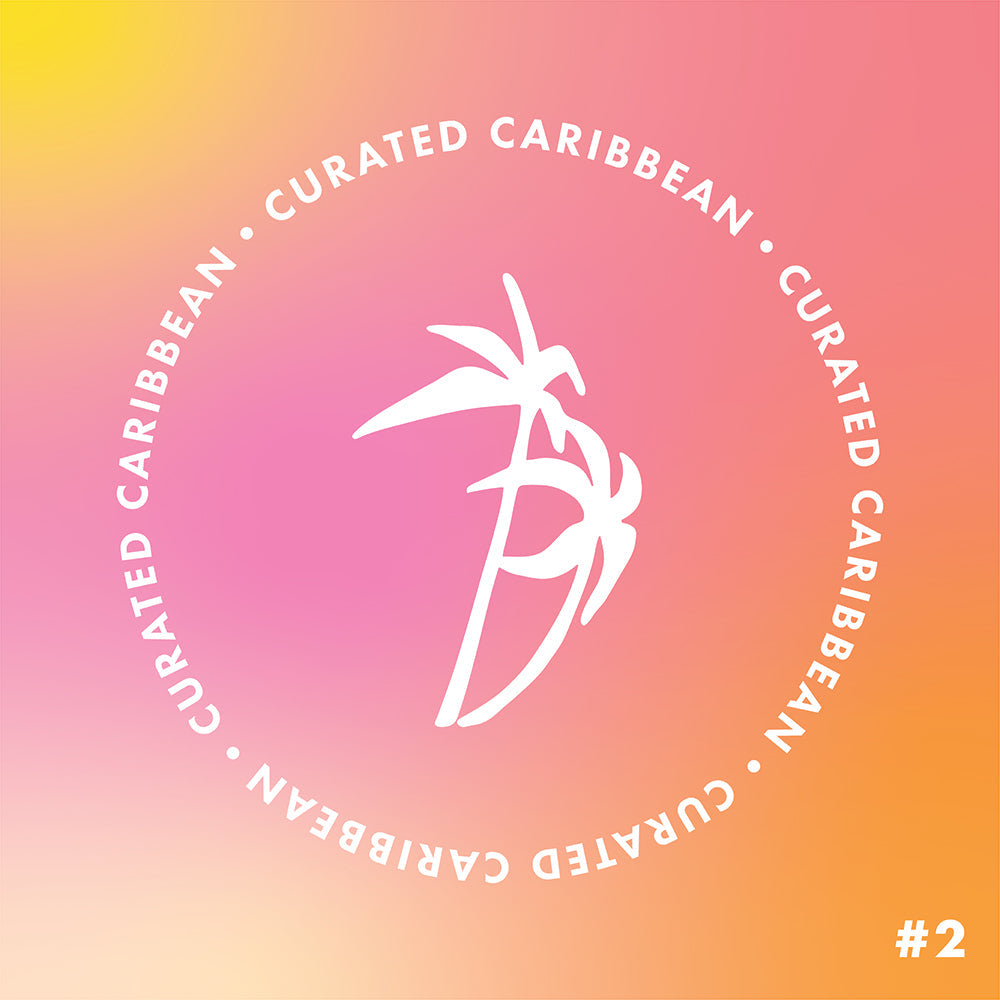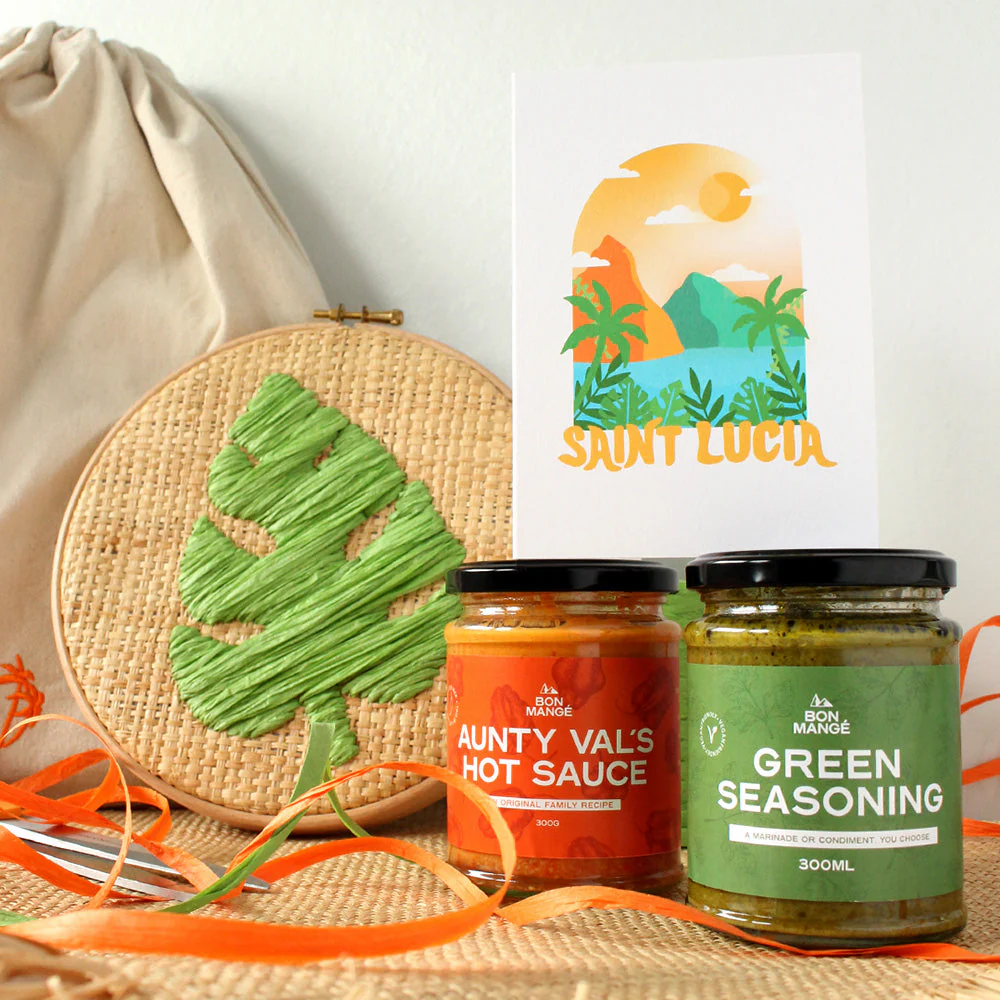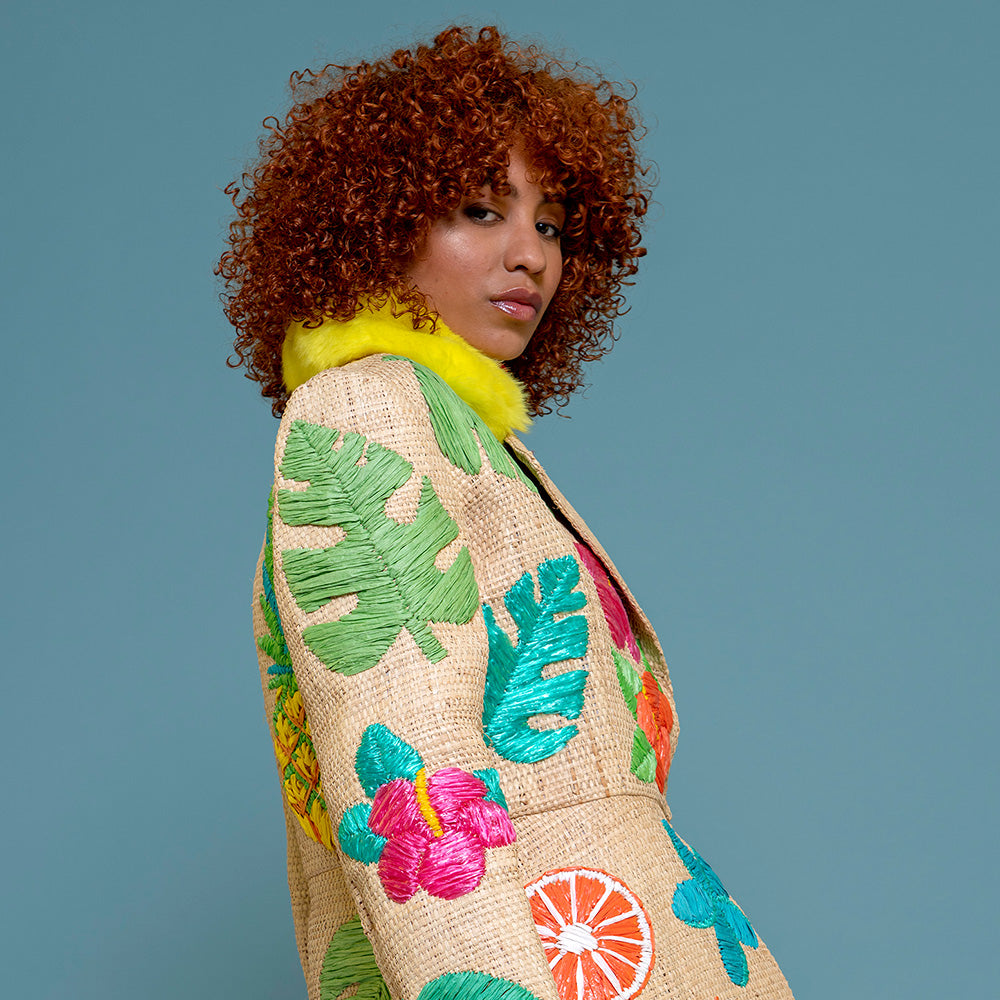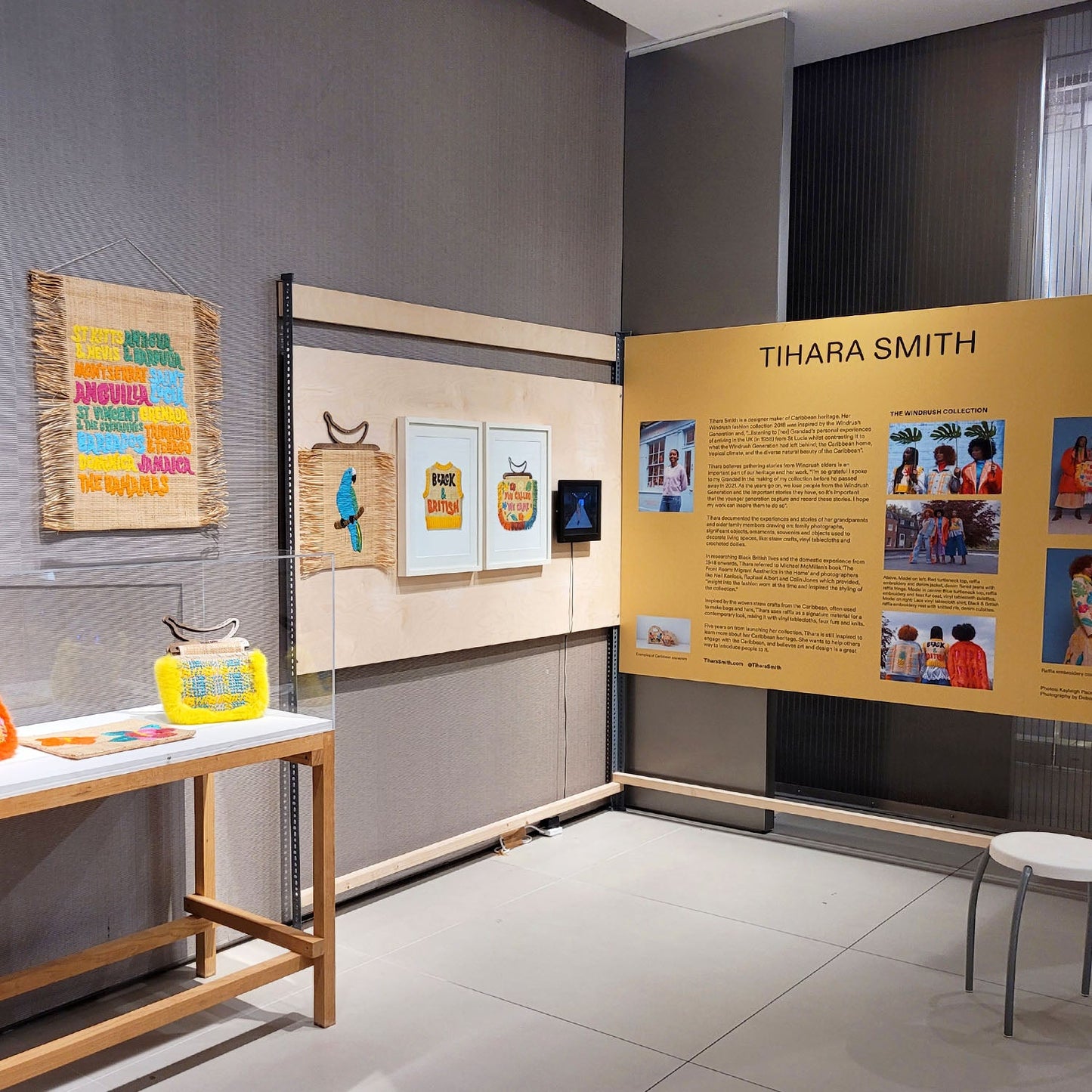
Dorcas Stories from the Front Room was a Craftspace exhibition that was open from 23 September – 29 October 2023 in Birmingham. The exhibition celebrated 75 years of Windrush by exploring Caribbean textiles, craft and fashion and was co-curated by Dr Rose Sinclair MBE . The exhibition told the story of Dorcas Clubs and featured historic documents, fashion garments, examples of domestic crafts, photography, contemporary fashion, audio stories and films. The exhibition was divided into three sections: Windrush Arrivals, We Are Here to Stay and Windrush Futures.
About the Dorcas Stories from the Front Room Exhibition
The exhibition traced the story of the Windrush, exploring its history and future legacy through textile crafts, fashion, Dorcas clubs and the ‘Caribbean front room’. The crafting stories of the Windrush Generation usually involve the decorating of the symbolic front room and crafts that were also made in the front room through textile networks like the Dorcas Clubs. The exhibition took visitors on a journey through three time zones, starting with the arrival of the SS Empire Windrush in 1948, through the decades following this, ending with the present-day Windrush descendants who are repurposing the Caribbean craft that they’ve inherited to claim identity and express their culture.
Missed the exhibition? Take a virtual tour with the button below!
Windrush Arrivals | 1948-1962
This section of the exhibition focused on the arrival of people from the Caribbean to Britain. After the end of World War II, the British government invited people from the British colonies to come to Britain to fill labour shortages. Many people from the Caribbean answered the call and travelled to Britain in search of work and new opportunities. In 1948, the ship Empire Windrush arrived, bringing some of the first Caribbean people to Britain. At the exhibition, visitors could see reconstructed transcripts of the original landing cards, which showed the professions of these arrivals, where they came from, and where they went after disembarking in Britain.

221 passengers arriving cited crafts or trades like dressmaker, hatter, tailor, shoemaker, upholsterer, cabinet maker, joiner, carpenter, blacksmith, tinsmith, mason, potter, turner, moulder, sign painter, and artist as their profession.
Craft skills such as crochet, knitting, embroidery, and smocking were not officially recognized on passports, but they did play a significant role in decorating the "Caribbean front room." The collection of Rose Sinclair exhibited in the exhibition emphasises how these crafts made their way into the home and evolved into community skills and forms of entrepreneurship.

We are Here to Stay | 1962-1990s
This section of the exhibition highlighted the production space for sewing and tailoring, domestically and professionally, representing the creation of new post-colonial identities through fashion and design, both in Britain and “back home”.
The 1960s marked a significant period of change in the Caribbean. The two largest islands, Jamaica, and Trinidad gained independence. In Britain, many Caribbean people started to also arrive by plane and as families. Children also travelled alone to join their parents who had already settled in Britain.

The exhibit showcased a production space for sewing, both for personal and professional use. It celebrated the talents of seamstresses, tailors, designers, and the fashion sense of everyday people. In addition, the photography of Vanley Burke was featured, offering a glimpse into how people dressed, their interior spaces, and where they worked.
The work of Birmingham tailor George Saunders was highlighted as well as Rose Sinclair's collection of 1960s/70s Jamaican Fashion Guild garments that showcased young Jamaican designers. Trinidadian designer Althea McNish, (1924-2020), also features here as the first designer of Caribbean heritage to gain international success in the field of textiles and art.
Windrush Futures
This area of the exhibition signified the continued role of craft and textiles in shaping the Windrush legacy for new generations. Four creatives of Caribbean descent were showcased showing how they draw on their grandparent’s craft skills and stories:
Daniel Gayle is the founder of Denzilpatrick, a sustainable fashion brand that reflects his Jamaican and Irish heritage. He combines this heritage with claiming space for self-expression of queer identity and gender, and the Windrush-inspired garments on display were inspired by stories of his grandmother and how she dressed up.
Tihara Smith creates designs that express her Caribbean identity and that are informed by oral testimonies from her St Lucian grandfather, inspired by his Windrush experience. Tihara draws on Caribbean straw crafts and incorporates contemporary typography, writing phrases in Jamaican patois, reflecting her Jamaican heritage from her grandmother.

Norma Banton is a master jeweller. Her approach to developing her craft is based on her faith, and the message of her work is in line with the Dorcas ethos about sharing the gift of your skills with others in the community and beyond.
Sara Fowles is the host of a podcast called 'Yarning: Tales from Birmingham', which focuses on Black women knitters. The podcast aims to challenge the wrongly perceived notion that Black women do not knit, which is a view that dominates the textile narratives. The interviews in the podcast feature stories of knitting and making from both the diaspora and Black British communities.
Who or what is Dorcas?
In late 18th century Britain, the Dorcas groups were formed as part of a philanthropic movement of middle and upper-class women who wanted to be involved in politics. The groups were named after Dorcas, a figure in the New Testament of the Bible, who made clothes for the poor and taught them to weave. Dorcas Clubs and Societies have been present in Birmingham since the 1820s. As the Dorcas Society or Club spread, it became associated with charity and sewing.
During the early 19th century, Christian missionary women brought Dorcas Societies to the Caribbean. These clubs became an integral part of the Caribbean community, bringing women together through textiles. They acted as networks for social and economic change, with textile skills being passed down through intergenerational groups as part of church culture.
Dorcas Clubs moved to the UK through migration and continued through the growth of Black-led Pentecostal churches. Caribbean women in Birmingham still meet to craft together and fundraise for the church to this day.
About Craftspace
Craftspace is a charity based in Birmingham that creates opportunities to see, make and be curious about contemporary craft. They celebrate craft and its power to change lives and communities. Craftspace works regionally, nationally, and internationally building relationships between artists, people, and organisations, encouraging the sharing of ideas, skills and knowledge.
Support Craftspace so that they can nurture more talent and reach more people. You can support them by donating or by buying something from their online shop. Learn about more ways you can support Craftspace here.
About Rose Sinclair MBE
Rose Sinclair is a Lecturer in Design Education at Goldsmiths, University of London. She is also a researcher, textiles practitioner, curator, and author. Rose specializes in Caribbean textiles, crafts, and migrant experiences in communities. She conducts research on Black British women's crafting and design practices, including textile networks such as Dorcas Clubs/Societies, and forms of participatory craft.
Rose grew up in Birmingham with her family in Handsworth, Ladywood, and Quinton. As she progressed through school and college, her passion for art, music, and textiles flourished. She learned sewing, knitting, and crochet from her mum and was surrounded by women of the local Dorcas Club, all of whom sewed or made. Much of the exhibition's content was drawn from her craft archives, some that belonged to or were made by, her mum.

